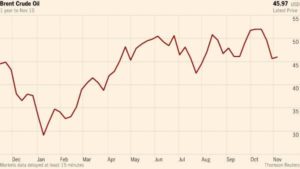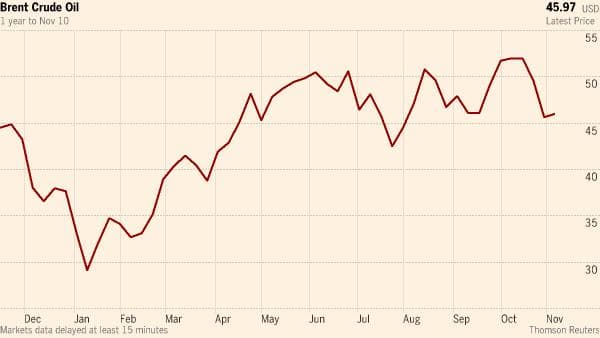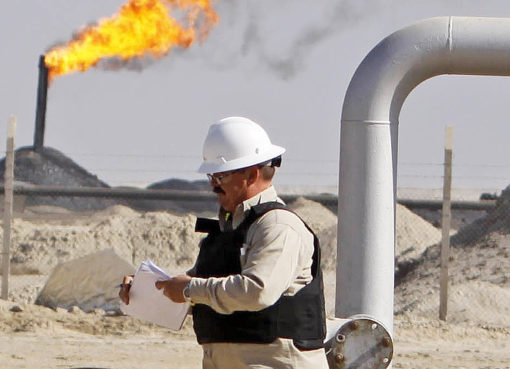
Iran stands apart from other Middle Eastern producers with resilient growth
As Opec prepares to meet at the end of the month, there has been a role reversal among the cartel’s heavyweights.
Saudi Arabia and arch-rival Iran are among producer countries discussing terms of a supply deal that could — if they can pull it off — be the first output cut since the financial crisis. The kingdom, it seems, is on the back foot.
By agreeing to even engage in such discussions to reverse a pump-at-max strategy of the last two years, some oil industry analysts say Saudi Arabia has already buckled as the oil price plunge creates economic havoc. Iran, meanwhile, is reaping the rewards of the lifting of sanctions against its oil industry.
The relative strength of their economies is laid bare in a new report from energy consultancy Wood Mackenzie, which highlights Saudi Arabia’s vulnerability. Despite its tendency to laud its huge fiscal buffers and low debt levels, the kingdom, which is the world’s largest crude exporter, is among the most oil-dependent nations in the Middle East. It will have to endure the sharpest economic slowdown of the region’s biggest oil producers for years to come, the report said.
The kingdom’s gross domestic product will slow from an annual average of 5 per cent in the five years to 2015 to 1.9 per cent by 2020, underlining the depth of the slowdown.
The report analyses the economies of Saudi Arabia, Iraq, Kuwait, Qatar and Iran.
The protracted oil price slump has created a ballooning budget deficit and a currency collapse, forcing Saudi Arabia to slash spending, implement austerity measures and raise its international debt to fill a gaping hole in its public finances.
Iraq, which has been at war with Isis militants, will see its average annual growth rate slow from 5.6 per cent between 2011-2015 to 2.8 per cent in 2016-2020. Gulf economy Kuwait will weaken from 3.1 per cent to 2.5 per cent over the same period, while the UAE can expect a similar fall from 4.8 per cent to 3.1 per cent, Wood Mackenzie says.
Iran, however, is the only country that will buck the trend, accelerating to an average of 4 per cent to 2020, according to the consultancy. Its GDP has been held back by years of western sanctions against its economy.
Saudi Arabia endured the largest fall in oil revenues as a proportion of total government revenues when oil prices slumped, and it is depleting its cash reserves at a rapid pace. Iran’s dependence on oil, meanwhile, is the lowest of all five of the Middle Eastern economies.
All major oil-producing economies are running fiscal deficits, with Saudi Arabia’s among the largest at 20 per cent of GDP, according to Wood Mackenzie. The IMF offers a slightly different view with a forecast of 13 per cent. It believes the majority of cuts to government expenditure have already taken place.
The Saudi currency has come under heavy pressure from speculators betting that the kingdom will be forced to revalue the riyal — which is pegged to the US dollar — while the domestic stock market has tumbled this year as investors fear that diminished oil revenues may push the economy into recession.
The kingdom is able to access debt markets — it recently raised $17.5bn at its debut sovereign bond sale — and it has a financial cushion that is not available to others such as Iraq. But there is a renewed urgency in Riyadh of the need to reduce the economy’s dependency on oil.
Wood Mackenzie estimates that Saudi Arabia needs an oil price of $92 a barrel to balance its budget this year — a stark indication of the challenge facing the kingdom in the current oil price environment. Kuwait has the lowest fiscal break-even of $57 a barrel.
Oil prices are currently trading around $46 a barrel and the failure to put in place a deal that was agreed in Algiers in September would bring more pain for producer nations. “The consequences are clear and the experience of the past two years has been noted,” said Mohammed Barkindo, the secretary-general of Opec said on Tuesday.
Source: Financial Times, NOVEMBER 11, 2016 by: Anjli Raval and Simeon Kerr
https://www.ft.com/content/79a30168-a771-11e6-8b69-02899e8bd9d1








Comment here